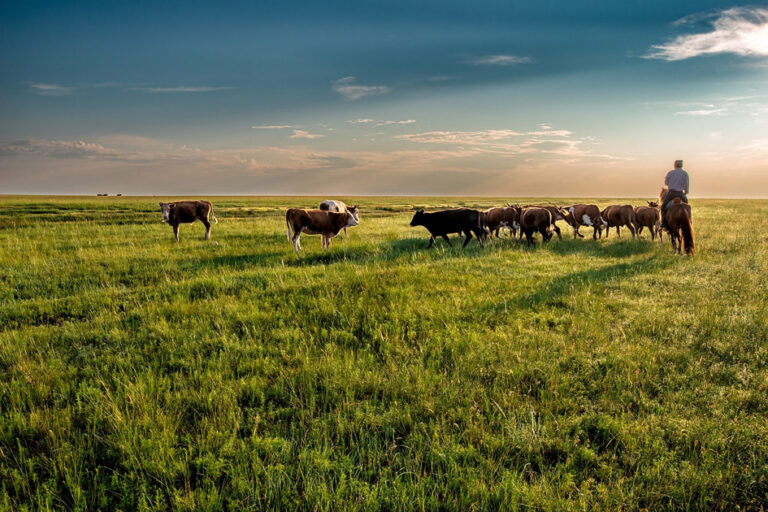Today, livestock production faces challenges of sustainability and animal welfare, which has prompted the search for more natural approaches to animal management. In this context, animal naturopathy has become an interesting alternative for the care of cattle, both beef and dairy.
This approach uses natural methods such as the fitotherapythe homeopathythe acupuncture and proper nutrition to improve animal health, reduce the use of chemical drugs and enhance the quality of by-products such as meat and milk.
A holistic approach to Animal Health
Animal naturopathy is based on the idea that living things have an innate ability to heal their bodies when provided with the right environment and treated holistically. Rather than focusing solely on the symptoms of disease, animal naturopathy is based on the idea that Naturopathy seeks to address its underlying causes and promote the balance of the organism through natural therapies.
In the case of bovines, phytotherapy plays a key role. Medicinal plants such as dandelion, chamomile and basil are used to treat digestive disorders, improve circulation and reduce inflammation. These herbs have properties that help strengthen the immune system of animals and promote their overall well-being. Recent research indicates that the use of medicinal plants can decrease the need for antibiotics and other chemical drugs, contributing to more sustainable and healthier livestock management.
Homeopathy, another tool of naturopathy, is used to stimulate the animal's natural healing system using substances in infinitesimal doses. Although scientific evidence on its effectiveness is still a matter of debate, some studies suggest that homeopathy may be useful in treating recurrent and chronic problems, such as mastitis in dairy cows or respiratory diseases in beef cattle.
Benefits for meat and milk production
One of the main benefits of naturopathy in animal husbandry is the improvement in the quality of bovine derived products. In the case of dairy cattle, the reduction in the use of antibiotics and hormones has a direct impact on milk quality. The growing demand for organic and chemical-free dairy products has led many producers to explore more natural alternatives. By strengthening the immune system of cows through natural therapies, the incidence of mastitis, one of the most common diseases on dairy farms, is reduced. This not only improves animal health, but also increases the quantity and quality of milk produced.
In beef cattle, naturopathy can contribute to the improvement of the quality of the final product. Cattle exposed to stress, for example, have higher cortisol levels, which can negatively affect meat quality. Naturopathic techniques such as acupuncture and the use of soothing herbs help reduce stress levels in animals, resulting in more tender and flavorful meat. In addition, natural treatments can improve digestion and nutrient absorption, which contributes to greater efficiency in meat production.
Challenges and future of Naturopathy in Livestock Production
Growing concern about the negative effects of overuse of antibiotics and chemicals in animal agriculture is driving a shift toward more sustainable practices. As demand for chemical-free products increases, meat and dairy producers are beginning to integrate naturopathic methods into their management. Combining traditional practices with new scientific research could be the key to a more sustainable future in animal agriculture.
In conclusion, animal naturopathy applied to cattle represents a promising alternative to improve animal health, reduce the use of chemical drugs and improve the quality of derived products. Although there is still work to be done in terms of scientific validation, its integration into modern animal husbandry could transform the way we manage animal welfare and livestock production.
Sources:
- Gocke, T., & Bauer, J. (2021). "Efficacy of Herbal Treatments for Digestive Disorders in Livestock". Journal of Veterinary Medicine, 35(3), 123-134.
- Smith, R., & Davis, M. (2020). "Alternative Veterinary Therapies: A Growing Trend in Animal Care." Veterinary Science and Practice, 12(4), 45-53.
- Williams, L., & Thomas, K. (2022). "Effects of Homeopathy on Cattle Health: A Systematic Review." Journal of Agricultural Science, 48(7), 895-908.



